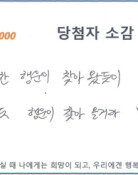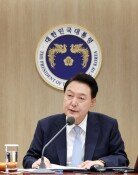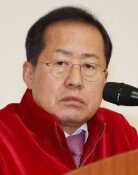Xinhua: `Abe should come clean first for a summit`
Xinhua: `Abe should come clean first for a summit`
Posted July. 30, 2014 07:15,
Chinas state-run Xinhua News Agency said on Tuesday that Japanese Prime Minister Shinzo Abe had hoped for multiple times a bilateral summit with China. The medium demanded first that Abe answer ten questions for that. Xinhua said Abe is whitewashing his paying respects to the memorial shrine of Japans war dead, the Yasukuni Shrine, as a move to wish for peace, which was putting insult upon injury as it had not apologized for invading China. The article addressed the Japanese Prime Minister with just Abe rather than mention his position.
According to the newspaper, Abe says that academically speaking the definition of invasion is diverse and so is different seen from some perspectives. Then Xinhua wanted to know if Japans invasion of Northeast China in 1931 and the massacre in Nanjing in 1937 are not invasions seen from a certain context.
The Japanese emperor said in his Imperial Rescript on the Termination of the War on Aug. 15, 1945 that Japan would surrender unconditionally and would adhere to the Potsdam Declaration or the Cairo Declaration, which includes details on permanent elimination of those who misled the Japanese public and attempted to take over the world. Is that document still effective?
When China and Japan made diplomatic ties in 1972, Japan said it felt responsible for the damages to the Chinese people and reflected deeply on that. Then were the government-approved textbooks in Japans distorting and lying about the truth about wartime sex slaves, biochemical warfare and the Nanjing Massacre a reflection and taking of responsibility?
The Japanese prime minister paid respects at the Yasukuni Shrine for war criminals and swore not to wage a war, but shouldn`t that be a more appropriate pledge before the worlds people? Japan is talking about a threat from China and attacks neighboring nations openly and yet what makes them worthy of doing so if they cannot even take care of their own past?
If against the backdrop of the sluggish Japanese economy and resultant negative public sentiment, wasting political capital using excessive nationalism and spending more on defense and therefore threatening peace draws parallels to Japan before the World War. Japan is building a network to surround China. Xinhua asked if building its own safety on the unstable foundations of another country makes it a normal country.
The Chinese medium also said that Abe is calling for revising the Japanese constitution to get out of the after-war system. Is Abe trying to shift to a system where military might is pursued? Japan is attempting to strengthen its alliance with the U.S. but that was done before the World War 1. Just as allies can sever the alliance, how long would these ties last when they are seeking different things? The world is trying to avoid a third World War and where does Japan stand on that issue?
Xinhua said, Japan forced China to accept unreasonable demands during World War 1 and under the principle of Greater East Asia Co-Prosperity Sphere, massacred Chinese people, which China will never forget. Xinhua said the world is inevitably on guard against Japans aspirations of becoming a formidable country that the current Japanese Prime Minister is pursuing.
Headline News
- Israel prepares for retaliation against Iran
- Samsung reclaims top spot, surpassing Apple in smartphone market
- 77% of Koreans in 20s and 30s are 'Kangaroo Tribe' due to job crisis
- KBO referees embroiled in controversy over ABS decision concealment
- Inflation, oil price surge put double shock on global economy







